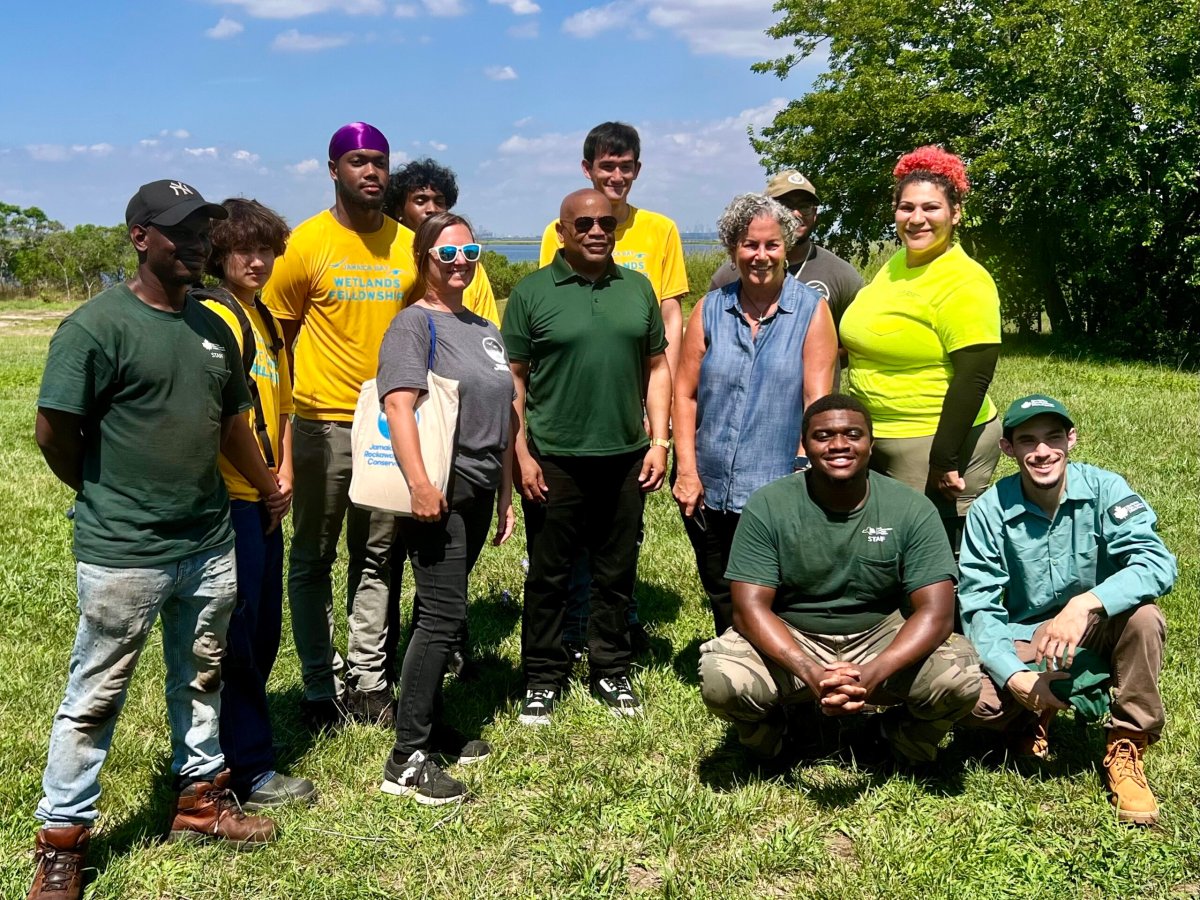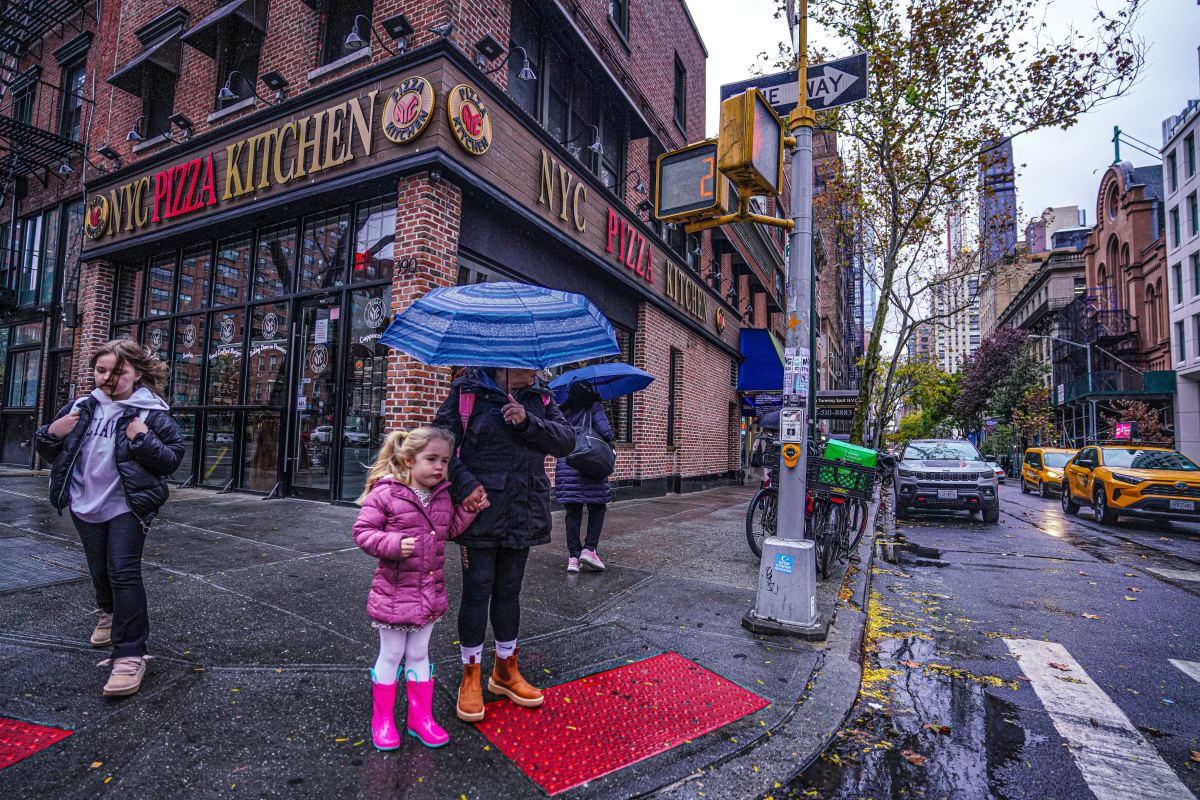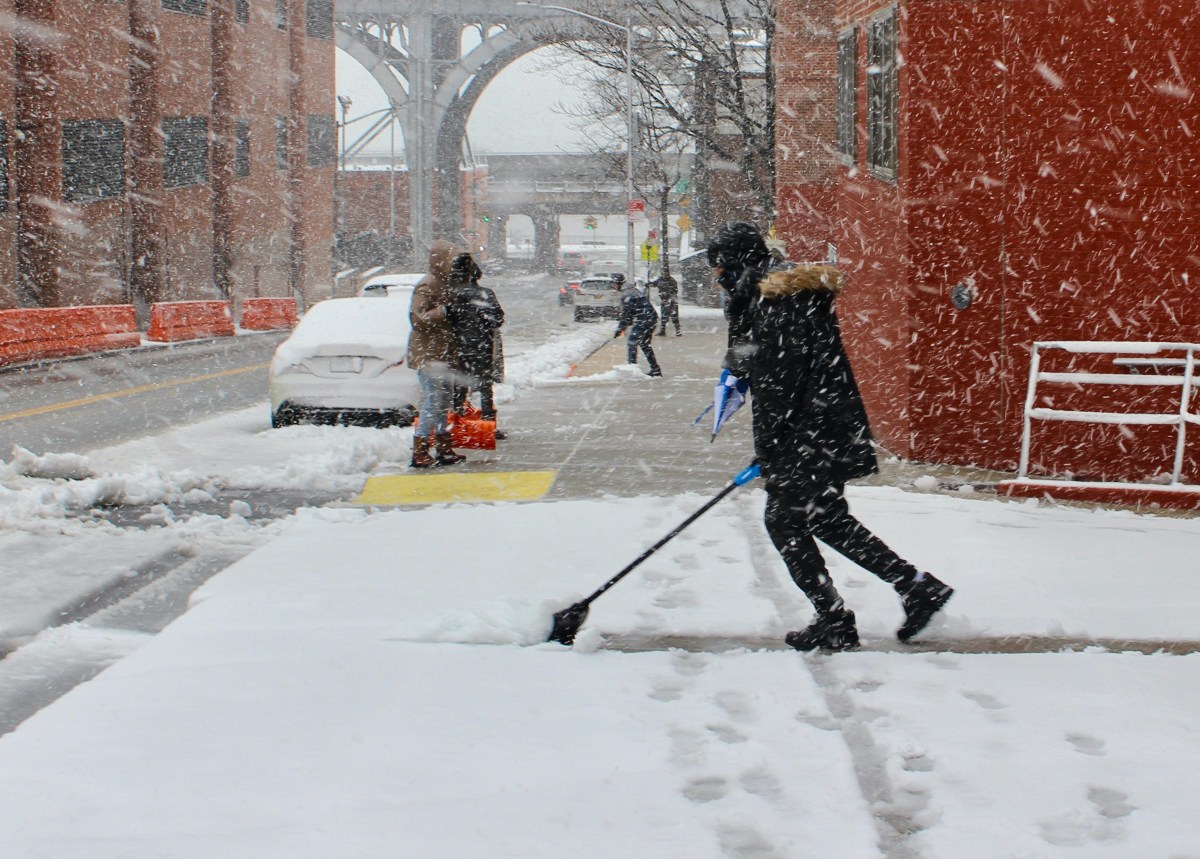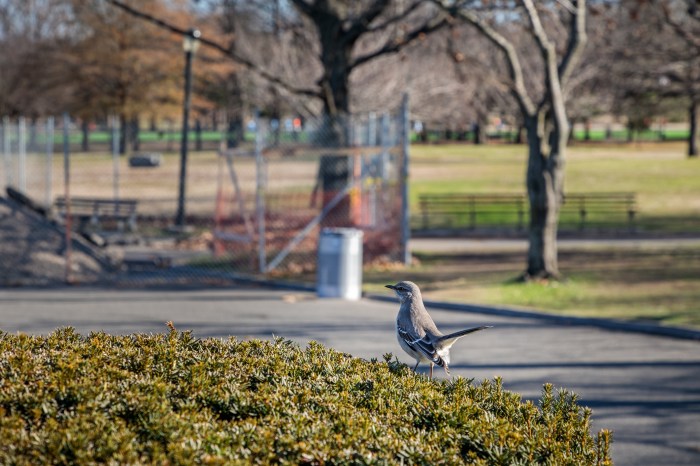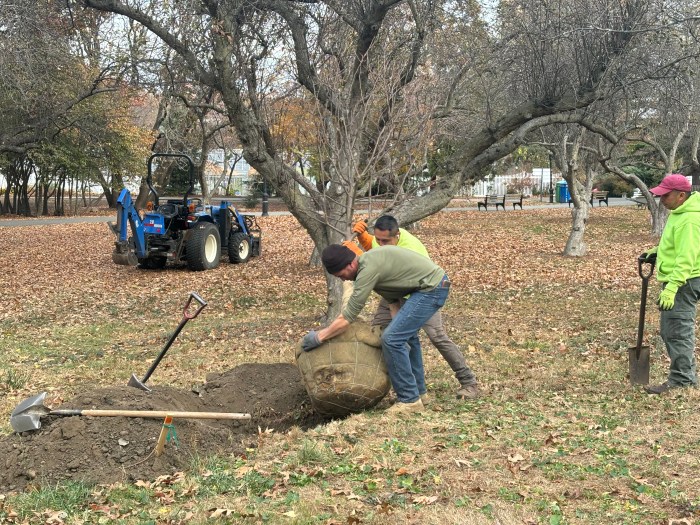New York State Assembly Speaker Carl Heastie visited Far Rockaway on Friday, July 28, for a tour of Bayswater Point State Park and the nearby shoreline of Jamaica Bay.
The invitation to tour the park came from South Queens Assemblywoman Stacey Pheffer Amato in an effort to show Heastie the importance of addressing climate change through funding and legislative efforts.
“We gave him a big perspective of Jamaica Bay to get to the size of it to know that it’s the jewel of New York City,” Pheffer Amato said. “He was able to see the habitat … and learn a lot. So this time, we wanted to kind of bring it down to the street level.”
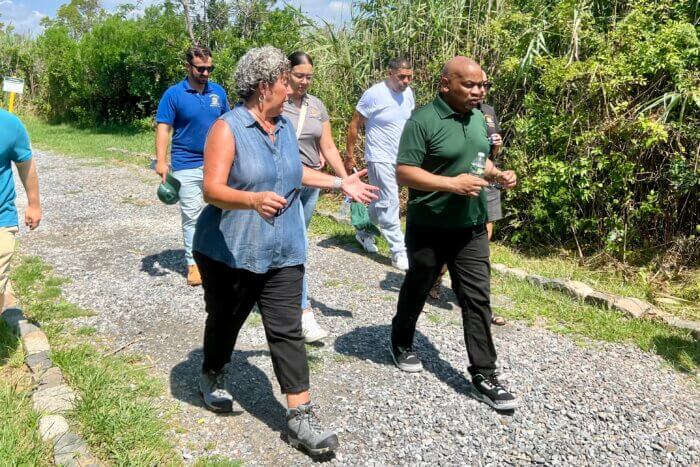
During the tour, Pheffer Amato and representatives from the Jamaica Bay-Rockaway Parks Conservancy (JBRPC) showed Heastie the ongoing environmental work in the park to repair the shoreline and protect the area from future floods, storms and sea level rise. JBRPC, the group responsible for these efforts, was first established a decade ago shortly after Hurricane Sandy in late 2012.
“She’s giving me a continuing education on the challenges here,” Heastie said. “I got a different perspective of the bay.”
One of the other features of the tour was highlighting JBRPC’s Wetlands Fellowship Program which has created opportunities for young locals to assist in the fight against climate change and the park’s overall maintenance.
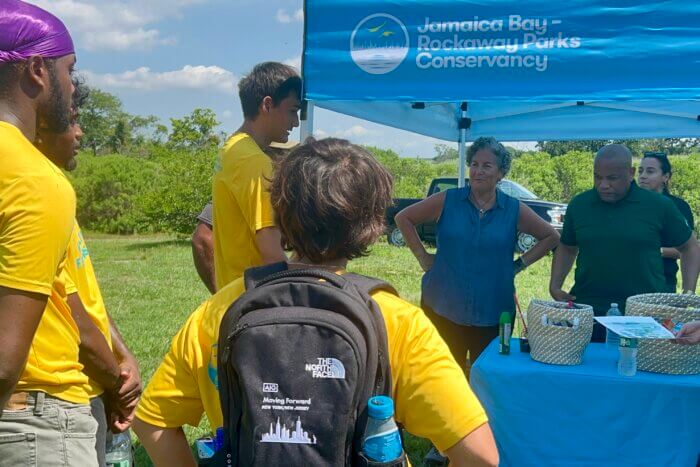
This has included pulling large chunks of heavy-duty wood that washed up out of the marshes, planting 62,000 plants over the course of several weeks, removing invasive plants, recreating a marsh that was previously destroyed by Hurricane Sandy and carefully moving a foot-long milk snake out of the way of their efforts.
JBRPC Executive Director Terri Carta praised the fellows for their work, saying they have helped to spearhead the area’s improvements. Currently, less than 10 fellows have participated in the program, with Carta hoping to expand to 10-12 next year and 15 by the program’s third year.
“They’ve been working for several months now,” Carta said. “We’re wrapping up the program at the end of August, and we look forward to expanding the program next year.”
Pheffer Amato, who grew up nearby in Far Rockaway, praised the fellowship program for its dual effort of preventing Jamaica Bay from deteriorating while also providing career pathways to local teens.
The assemblywoman also praised Heastie for his willingness to come to Far Rockaway and see JBRPC’s work for himself, adding that his visits to the area are crucial in continuing conversations about climate change.
“When he sees that, it brings that perspective when he’s meeting with Congressman [Gregory] Meeks or other people; he now understands what we’re talking about,” Pheffer Amato said. “We’re just a little dot in the big state of the world so it’s great that we can bring that attention here.”
Heastie echoed the importance of his visit and pursuing decarbonization efforts on a federal level to prevent the planet from further warming. The assembly speaker also pointed to a recent trip he took to Denmark and how the whole country has already committed to unified efforts in combating climate change.
“The country’s mindset on dealing with climate change was across the board,” Heastie said. “I think that we have to get to that point, and people are going to have to understand in order for us to get to fighting climate change or getting us to be more climate resilient, it’s going to take some sacrifice.”
“This may seem small in the grand scheme of things … but we have to start doing these things one by one, and everyone has to start to pitch in to make some change,” Heastie continued. “Because if not, these floodings and storms, they’re just going to become more and more frequent than they already are.”

